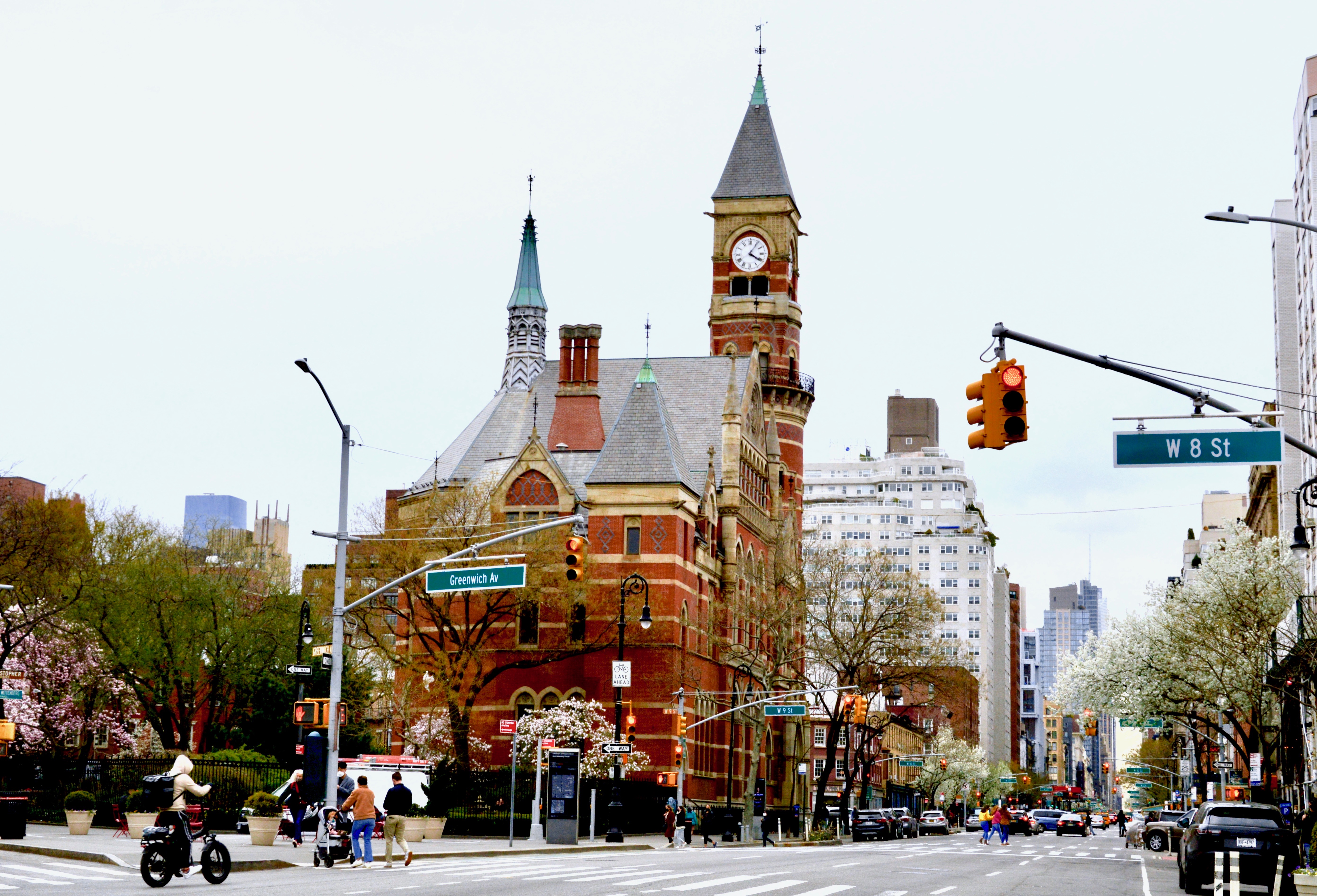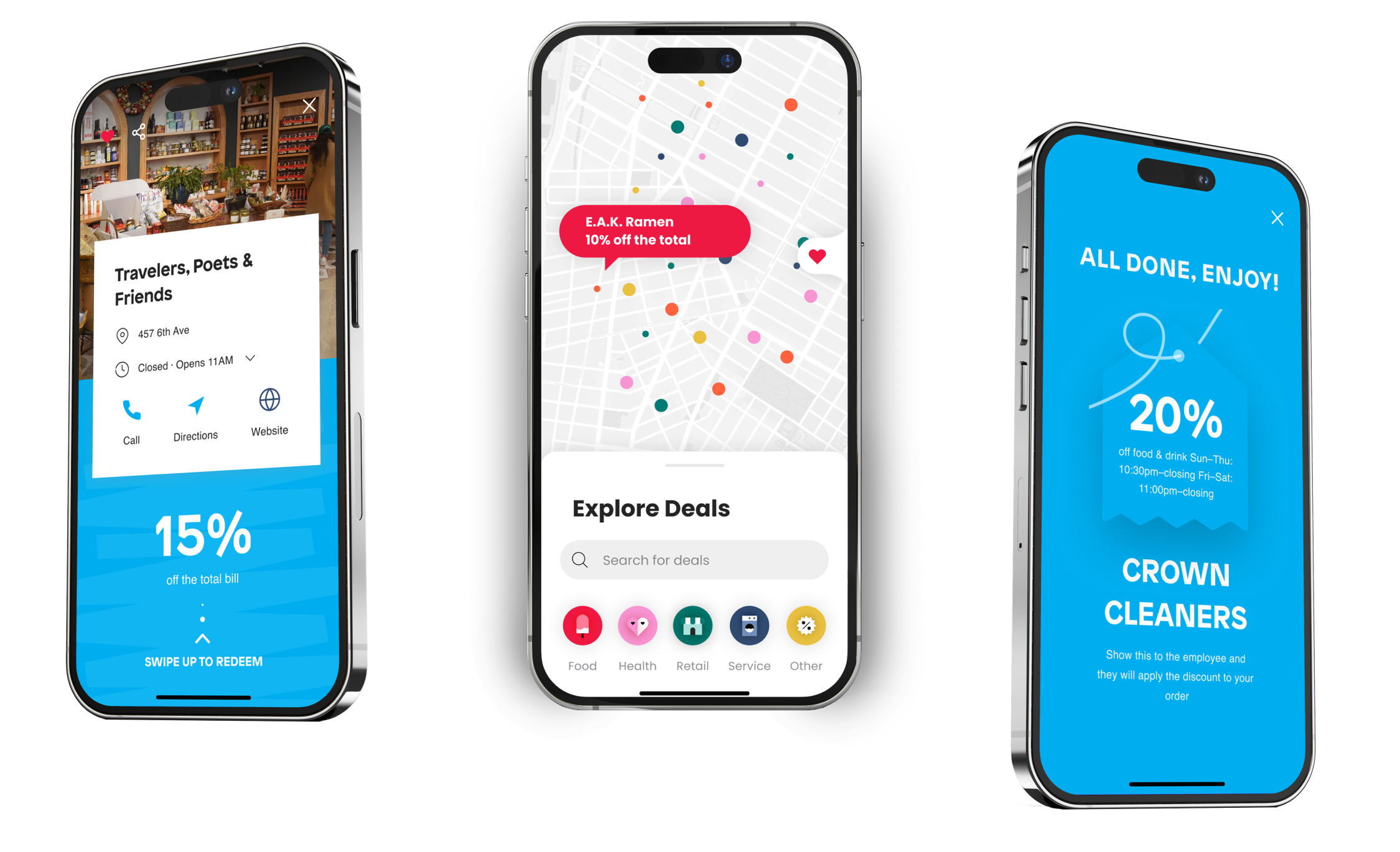Meet the Village: Frank from Jefferson Market Library
This edition of Meet the Village puts the spotlight on Frank Collerius, the manager of the iconic Jefferson Market Library.
Meet the Village: Frank from Jefferson Market Library
“My name is Frank Collerius, I work at the Jefferson Market Library in Greenwich Village.”
This edition of Meet the Village puts the spotlight on Frank Collerius, the manager of the iconic Jefferson Market Library. Read below for the full interview, and watch the video interview on our Instagram.

Frank Collerius: My name is Frank Collerius, I work at the Jefferson Market Library in Greenwich Village.
VA: And what do you do?
FC: I’m the manager of the library, which used to be called Branch Librarian and now it’s evolved into manager—but it’s taking care of the space and the people in it.
VA: What does a day in the life look like?
FC: Well, mostly we think libraries are serene places—and they are—but because we work with the public, the first thing that came to mind was dealing with something that I might not have expected in terms of behavior, needs, or a question that can redirect my day in terms of what I do when I come in. But otherwise, it’s managing the staff, making sure that everything is beautiful and everything is organized.
VA: What’s your favorite part of working in a library?
FC: I’ve been at Jefferson Market for 25 years, so I’ve noticed things evolve over time. The basic principles of libraries are still paramount, but I’ve noticed things have changed. Things can change about what I love and what I really get into.
Right now, what gives me the most pleasure is showing movies in a beautiful little theater we have—I want it to be like a revival house, which I remember from my childhood—and managing the books on the shelves, because the rooms where the books are are so beautiful and I love watching people browse them. Really just organizing and shelving has been such a pleasure to me lately. It’s so basic and so physical. You can shelve a series of books and feel like you’ve accomplished something.
Sometimes, a lot of what I do is theoretical—concepts of what programs we might work on or what kind of community offering we will deliver, and that is a concrete task I can finish that I get a great deal of pleasure out of—which is something that most librarians start off doing, shelving and things like that. I find it a great deal of pleasure to do that, to make things in order.
VA: Why are libraries important?
FC: I think everybody can answer that in a different way. Why they’re important to me? I feel like it’s the one environment you can go to—or maybe there’s more—but it’s somewhere you don’t have to buy anything, where you can exist and contemplate and be with your thoughts and be with language without interference, without a lot of noise. Libraries have evolved over the years; some spaces are noisier, some spaces are serene. I like the idea of having zones for different activities, but in general, a reading room, to make it a quiet space.
I know that’s the cliché of libraries, but it’s actually—maybe I’m going back to these core values, to provide a sort of safe, quiet, contemplative, beautiful space for people to access for free.
Anybody, no questions.
And then in terms of searching, how we search for information, to be in that room with the material that we offer, offers a different kind of serendipity. We were just looking at a kid who was reading a graphic novel that he found on the shelf. It’s a different way of finding something that can be just as serendipitous and pleasurable as getting it suggested to you by a machine.
VA: What do you enjoy most about living and working in the Village?
FC: It’s a legendary place. It has values that over time have become very important to me. It’s a very conscious part of town, I find—very grassroots, and very understanding of what needs to be done. I’m talking about the complexion of the people that are here. It’s a very smart, sentimental, hard-edged but liberal place to live and work.
I really value a lot of those principles.
VA: Do you have a favorite Villager, living or dead?
FC: I do. Her name is Lisa Davis. She’s been here for many, many years, and she’s done programs for us about the history of cabaret, drag bars, and drag king bars from the forties onward. She’s a great writer, and she’s a great character. She’s a good example of what I just talked about. She’s tough, but she also adores being here because it’s a refuge. It’s a place where she feels part of the community, of which she’s been so much a part of for all these years. And as she gets older, she finds that even more important to her, to come to a place where her words are heard and respected. And I think she’s got something to say. And I love that.
VA: Do you have a fun fact about yourself or the library?
FC: A fun fact about the library, I’m sure a lot of people know, is that it was originally built as a courthouse, built in 1877, and stopped being a courthouse in the mid-forties after the war and lay basically dormant for 15 years. But the fun fact, which is also an important fact, which also illustrates everything I just said about the Village, is the people in the community rallied to save the building.
If you’ve seen the building, you can see what it looks like. And back in the day in the fifties, it was considered a bit of an eyesore, too ornate, because I think modernism was very, very prevalent and the community wanted to save the building and not only did they want to save it, they wanted to make it a public space.
This was before Landmarks Protection, so the community did it on their own and convinced the city, the mayor, to save the building and turn it into something public, which was a library. So the fact that they were able to save this building from literal demolition, to turn it into a beautiful public space that’s now valued by the community, is amazing to me. Without any legal protection like Landmarks. You’ve heard of Penn Station’s demolition. It’s that same period of time in the sixties, so I admire them for that. And that illustrates everything I just said about public spaces and the community.
Thank you for checking out this edition of Meet the Village! Stay tuned for the next interview.

